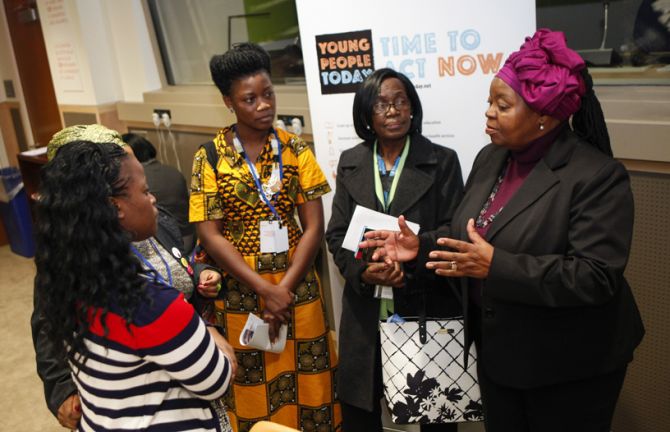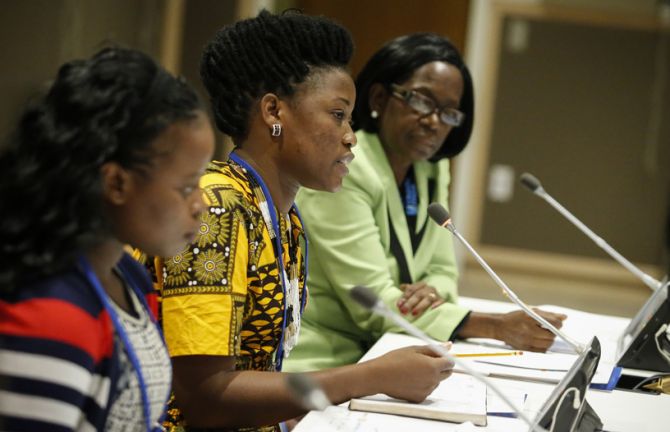


Update
Changing the prospects for women and girls in eastern and southern Africa
12 March 2015
12 March 2015 12 March 2015A joint event organized by UNAIDS and the United Nations Educational, Scientific and Cultural Organization held during the fifty-ninth session of the Commission on the Status of Women, in New York, United States of America, has shined the spotlight on the health, social and legal services available to women and girls in eastern and southern Africa.
Participants attending the session heard Sheila Tlou, UNAIDS Director for the Regional Support Team for Eastern and Southern Africa, highlight the progress made and challenges ahead in scaling up access to sexuality education and health services for women and girls in the region.
Professor Tlou said many countries had made notable progress in putting young people, particularly young women and girls, at the centre of their national health and development agendas. Adopted in December 2013, the Eastern and Southern Africa Ministerial Commitment brought together ministers of education and health from 20 countries to pledge acceleration of the delivery of sexuality education and sexual reproductive health programmes for young people.
However, young women and girls in eastern and southern Africa continue to face a higher risk of HIV infection. In 2013, women in eastern and southern Africa accounted for 59% of all adults living with HIV. An estimated 230 000 young women between 15 and 24 years of age were newly infected with HIV in the same year. Violence against women, the high rate of teenage pregnancy, poverty and gender inequalities are some of the reasons that young women and girls are at risk of poor health outcomes, including HIV.
Participants recommended that specific goals and targets for women and girls be included in the post-2015 agenda, including increasing access to education, ending child and forced marriage, and halting gender-based violence.
Quotes
“Education has a protective effect against HIV, against unintended pregnancy and against early marriage. That can only be realized if we ensure that more girls and young women are enrolled and complete primary education and continue to secondary education. To make this happen requires bold action, but it is doable and it needs to be done now.”
“There is an urgent need to focus on young people between the ages of 15-24 as they are most affected and have the highest rate of mortality due to HIV.”
“Fast-tracking access to quality comprehensive sexuality education and sexual and reproductive health services will guarantee a healthier and more resilient future for young women and girls.”
“A simple recommendation for the post 2015 agenda is that we need a target to end child marriage. We must also dare to set targets that deal with teenage pregnancy, HIV, education, women’s empowerment and a whole range of other issues. Change happens if we dare to think differently and do business unusual.”
“I have seen many young women and girls die just because they did not have access to something that is so basic – knowledge. Knowledge they could have obtained if they could read and knowledge that could have saved their lives.”



